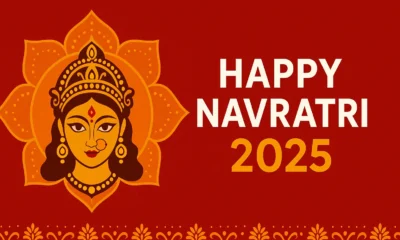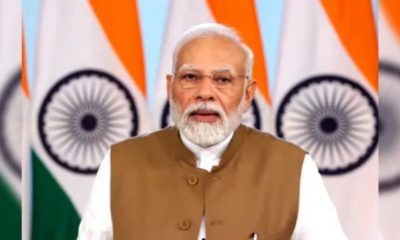The auspicious occasion of Navratri is a biannual festival celebrated by Devotees from all over the world. The first Navratri, known as Chaitra Navaratri, is usually performed from March to April. whereas, the second which is the primary Navaratri, Shardiya Navaratri, falls from September to October.
Navaratri is celebrated in honor of the nine avatars of the goddess Durga that she manifested during her 9-day-long battle with Demon Mahishasura, which ended with Goddess Durga defeating and killing Mahishasura on the tenth day, also known and celebrated as the day of Vijayadashami. During the nine-day-long span of the festival, the devotees and followers indulge themselves in rituals and festivities in devotion to Goddess Durga’s nine forms.
Rituals followed during Navaratri are as follows:
Ghat Sthapna Puja:
On the morning of the first day of Shardiya Navaratri, the ritual of Ghat Sthapna Puja is performed. In the ceremony, the devotee has to place a Durga idol or photograph at a place where it can’t be moved during the span of the festival. The ceremony also imposes the devotees to put a pitcher filled with mango leaves and coconut near a location and plant sorghum seeds around it. The devotees, who are expected to carry out the various tasks usually assemble and put everything in the morning and ask goddess Durga to bless them with wealth and knowledge.
Durga Aarti
Another important component of the festival is the Durga Aarti which is the prayer performed to honour the goddess Durga twice a day. Devotees usually perform the prayer early morning and late in the evening because that allows them to carry out different preparations during their free time. The devotees usually recite the prayer every day throughout the festival of Navaratri.
Durga Saptshati Path
Durga Saptashati Path is a sacred text or poem that imparts the teachings and beliefs of the goddess Durga in her own words. The devotees read the text or the poems to honour and absorb the knowledge the goddess has departed in the text.
Read Also: Mother’s wicked reply in her 4-year-old son’s school form goes viral, tweeple call her savage mom
Kanya Pujan
In this ritual, the devotees prepare the Goddess Durga’s favorite food which is Halva, Puri, and Chane to offer to the girls from the neighborhood, who are invited and welcomed to feast during the time. The devotees also touch the feet as a sign of respect and to seek blessings from them. The girls are also given gifts after their feasts.
Navratri fast
Devotees usually practice fasting according to their convenience and health measures, Usually many devotees begin their fasting from the first day of Sharidiye Navratri and go on to fast for all nine days of the festival. Whereas, some only fast on the commencement and concluding days.
Dandiya Dance or Garba Raas
One of the most loved and iconic days of the festival is the day of Garba and Dandiya Raas, where devotees indulge themselves in the act of dancing with the help of two Bamboo sticks. The dance symbolizes the battle between goddess Durga and Demon Mahishasura. The dance is also known as the sword dance.
Navratri Jawar Visarjan
On the ninth day of the celebration, devotees while worshiping the goddess and take the grown Jawar, which was planted around the pitcher on the commencement day, is taken for immersion into the rivers, or sometimes, the followers even place them under Peepal trees.
Duga Visarjan
Much like its name, Durga Visarjan, or immersion of goddess Durga into the rivers, ponds, and lakes is also carried out by devotees. Many places that organize pandals with huge Durga idols get to immerse big idols of goddess Durga.
These are some of the rituals that one can witness during the festivities of Shardiya Navaratri. Shardiya Navaratri, this year, will commence on 26th September and end on 5th October.
Viral: UP man sets bike ablaze after getting fined by cops, leaves internet in splits | Watch
Madhya Pradesh: Congress councillor Lakshmi Shivhare stages protest by dumping garbage outside Sheopur municipality office


 India News21 hours ago
India News21 hours ago
 India News20 hours ago
India News20 hours ago
 India News10 hours ago
India News10 hours ago
 Cricket news10 hours ago
Cricket news10 hours ago
 India News9 hours ago
India News9 hours ago














